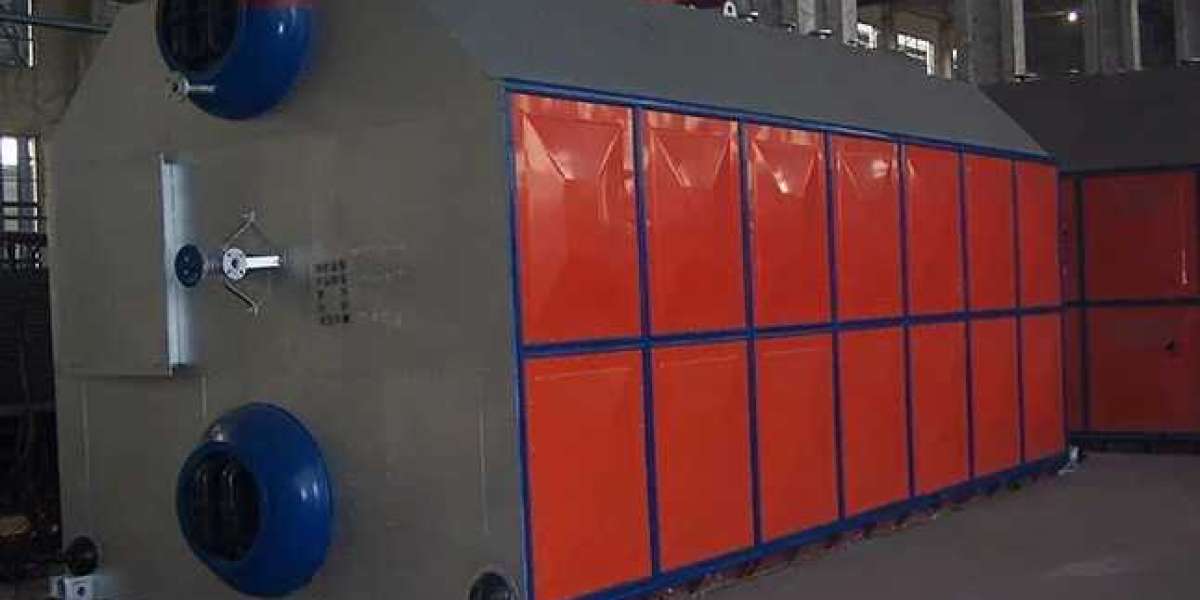Biomass boilers have emerged as a sustainable and efficient heating solution, gaining traction in the quest for eco-friendly energy sources. This blog post delves into the key aspects of biomass boilers, shedding light on their functionality, environmental benefits, and economic viability. From understanding the basic principles to exploring their potential applications across residential and commercial settings, this comprehensive guide aims to provide valuable insights into biomass boiler technology.
With a focus on demystifying the operational mechanics and addressing common misconceptions, readers can expect an informative exploration of how biomass boilers contribute to reducing carbon emissions while offering reliable heating solutions. By examining both the environmental impact and cost-efficiency considerations associated with these systems, this post equips readers with essential knowledge for evaluating the suitability of biomass boilers for diverse heating requirements.
Understanding Biomass as a Renewable Energy Source
Types of Biomass
Biomass encompasses a variety of organic materials, such as waste wood, agricultural residues, and dedicated energy crops. These resources can be used to produce heat and electricity. Unlike finite resources like fossil fuels, biomass is considered renewable because it can be replenished within a relatively short period.
Biomass plays a crucial role in reducing reliance on non-renewable energy sources like natural gas and oil. By utilizing waste wood or agricultural residues for energy production, the environmental impact associated with waste disposal is minimized. The use of biomass helps reduce greenhouse gas emissions by providing an alternative to burning fossil fuels.
Benefits of Biomass Boilers
One significant advantage of using biomass boilers is their contribution to reducing carbon dioxide emissions. When compared to traditional fossil fuel-based heating systems, biomass boilers have a lower overall carbon footprint since they utilize organic material that absorbs carbon during its growth phase. This means that the net effect on atmospheric carbon dioxide levels from burning biomass is close to zero.
Another benefit lies in the potential cost savings associated with utilizing locally sourced biomass materials for energy production. This not only supports local economies but also reduces dependency on external sources for fuel supply. Moreover, employing biomass boilers can aid in achieving greater energy security by diversifying the sources used for electricity generation and heating.
Key Benefits of Biomass Boilers
Reduced Carbon Emissions
Biomass boilers play a crucial role in reducing carbon emissions by utilizing organic materials such as wood pellets, chips, or logs to generate heat. Unlike traditional fossil fuel-based heating systems, biomass boilers produce significantly lower levels of carbon dioxide when combusting organic materials. This reduction in carbon emissions contributes to mitigating the impact of climate change and helps create a more sustainable environment for future generations.
Moreover, the use of biomass boilers reduces reliance on finite fossil fuels like coal, oil, and natural gas. By transitioning to renewable energy sources for heating purposes, individuals and businesses can contribute to decreasing their overall carbon footprint and promoting environmental sustainability. For instance, residential properties that rely on biomass boilers for generating hot water and heating can substantially decrease their dependence on non-renewable resources while also lowering their environmental impact.
Sustainable Heating Solution
One significant advantage of biomass boilers is that they provide a sustainable heating solution for both residential and commercial properties. These boilers utilize organic matter from plants or waste products as fuel, making them an environmentally friendly alternative to conventional heating systems. The utilization of sustainably sourced wood pellets or other forms of biomass ensures that the process remains eco-friendly throughout its lifecycle.
Furthermore, many countries have policies in place to incentivize the adoption of renewable energy technologies such as biomass boilers, thereby encouraging individuals and businesses to embrace sustainable heating solutions. This support from governmental bodies fosters widespread adoption while simultaneously driving innovation within the renewable energy sector.
Cost Savings and Long-Term Energy Security
In addition to their positive environmental impact, biomass boilers offer substantial cost savings over time due to the relatively stable pricing of biomass fuels compared to volatile fossil fuel prices. By investing in a biomass boiler system for hot water production or space heating needs, users can benefit from long-term financial stability through reduced energy costs.
For example:
Residential homeowners who switch from traditional oil-fired central heating systems to modern biomass boiler installations may experience noticeable reductions in their annual energy expenses.
Commercial enterprises can also capitalize on cost savings by integrating efficient biomass boiler technology into their operations while simultaneously demonstrating corporate social responsibility through reduced greenhouse gas emissions.

Types of Biomass Boilers and Heating Systems
Different Types
Biomass boilers come in various types, each designed to cater to different needs. The most common types include log boilers, wood pellet boilers, and wood chip boilers. Log boilers are typically manually loaded with logs, making them suitable for those who have access to a good supply of wood. Wood pellet boilers, on the other hand, use compacted sawdust pellets as fuel, offering a convenient and efficient heating solution. Meanwhile, wood chip boilers are ideal for larger properties or commercial settings due to their high heat output.
One can also find different biomass heating systems that vary in terms of scale and integration into existing structures. These range from standalone stoves used primarily for room heating to fully integrated central heating systems that can provide warmth throughout an entire property.
Fuel Requirements and Efficiency Levels
Each type of biomass boiler has specific requirements. For instance, log boilers require seasoned wood with low moisture content for optimal performance. On the other hand, wood pellet and wood chip boilers need a constant supply of pellets or chips respectively.
Wood pellet and wood chip boilers generally offer higher efficiency compared to log boilers due to their automated feeding systems and advanced combustion technology. This means they can produce more heat using less fuel which results in cost savings over time.
In terms of heating systems, standalone stoves offer the flexibility of being installed almost anywhere while providing direct radiant heat within a single room or open space. Central heating systems powered by biomass offer a more comprehensive solution by distributing heat through radiators or underfloor pipes across an entire building.
Installation and Maintenance of Biomass Boilers
Importance of Proper Installation
Proper installation of a biomass boiler is crucial for its optimal performance and safety. It ensures that the boiler operates efficiently, minimizing the risk of malfunctions or accidents. The installation process involves connecting the boiler to the heating system, which may include underground piping for transporting hot water to different areas within a building. It's essential to ensure that the biomass boiler is appropriately connected to any existing appliances or facilities, such as back boilers or single-room heating systems.
Improper installation can lead to various issues, including inefficient operation, reduced lifespan of the boiler, and potential safety hazards due to fire risks. For instance, if there are errors in connecting the biomass boiler with other components of the heating system, it could result in inadequate heat distribution throughout a room or building. This emphasizes why professional expertise is often required during installation to guarantee that all aspects are handled correctly.
Significance of Regular Maintenance
Regular maintenance plays a vital role in ensuring efficient operation and prolonging the lifespan of a biomass boiler. It involves inspecting various components such as fire grates and ash removal systems while also checking for any signs of wear or damage. Moreover, maintaining clean combustion chambers helps prevent soot buildup that can negatively impact efficiency.
When maintenance tasks are neglected, it can lead to decreased efficiency due to clogged air passages or increased fuel consumption caused by poor combustion quality. Furthermore, neglecting regular maintenance may result in costly repairs down the line if minor issues escalate into major malfunctions.
To illustrate further on this point: consider an improperly maintained biomass boiler with accumulated ash hindering proper airflow within its combustion chamber; this would likely lead to incomplete burning of fuel pellets causing excessive smoke emissions and reduced heat output.
Professional Expertise for Installation and Servicing
Given these critical considerations related to both installation and maintenance processes for biomass boilers—such as proper connections between components during setup (including back boilers), regular inspection routines involving fire grates ash removal systems—it becomes evident why professional expertise is often necessary. Professional installers possess specialized knowledge regarding local regulations governing installations along with technical know-how needed for safe integration into existing heating systems.

Energy Efficiency in Biomass Boiler Technologies
Advanced Combustion Technology
Modern biomass boilers utilize advanced combustion technology to achieve high efficiency in energy production. By efficiently burning organic materials, such as wood pellets or chips, these boilers can produce a significant amount of heat with minimal waste. The combustion process is optimized to extract the maximum amount of energy from the fuel, resulting in an efficient conversion of biomass into usable heat. This advanced technology ensures that a large portion of the fuel's energy potential is harnessed for practical applications.
Biomass boilers are equipped with state-of-the-art combustion systems designed to maximize energy production while minimizing environmental impact. These systems often include features such as oxygen sensors and modulating controls that adjust air and fuel supply to optimize combustion efficiency. As a result, modern biomass boilers can achieve impressive levels of thermal efficiency, ensuring that a high percentage of the available energy content in the biomass is effectively utilized.
Sizing and System Design
Proper sizing and system design play crucial roles in optimizing the efficiency of biomass boilers. Ensuring that a boiler is appropriately sized for its intended application is essential for maximizing its operational efficiency. An oversized boiler may operate at lower temperatures than optimal, leading to reduced overall efficiency and increased emissions. Conversely, an undersized boiler may struggle to meet heating demands efficiently.
System design also significantly impacts the overall performance and energy production capabilities of biomass boilers. Well-designed systems incorporate components such as thermal storage tanks and integrated controls that enhance operational flexibility and allow for better matching between heat demand and supply from the boiler unit.
Moreover, combined heat and power (CHP) systems further exemplify how proper system design contributes to enhanced efficiency in utilizing biomass resources for both generating electricity and producing thermal energy simultaneously. CHP systems enable more comprehensive utilization of the available energy content within biomass feedstock by harnessing waste heat produced during electricity generation processes to fulfill heating requirements or other industrial processes.
Environmental Sustainability of Biomass Heating
Reduction of Greenhouse Gas Emissions
Biomass boilers play a crucial role in reducing greenhouse gas emissions when compared to traditional heating methods. When wood fuel or wood pellets are used as the primary source of energy, the combustion process releases carbon dioxide into the atmosphere. However, this is offset by the fact that during their growth phase, trees absorb an equivalent amount of carbon dioxide from the atmosphere. As a result, there is a balance between the carbon emitted during combustion and that absorbed during tree growth.
This sustainable cycle helps to mitigate climate change by minimizing net greenhouse gas emissions. Unlike fossil fuels such as coal or oil, which release additional carbon into the atmosphere without any corresponding absorption mechanism, biomass heating contributes significantly to environmental conservation efforts.
Recycling Ash as Natural Fertilizer
One notable advantage of biomass boiler technology is its ability to recycle ash produced during combustion processes. The ash generated from burning wood fuel or pellets can be repurposed and used as a natural fertilizer for agricultural purposes. This practice not only reduces waste but also provides an environmentally friendly alternative to chemical fertilizers.
The use of ash as fertilizer enriches soil with essential nutrients like potassium and phosphorus while promoting plant growth and sustainability. By utilizing this byproduct effectively, biomass heating systems contribute positively to circular economy principles and support sustainable agriculture practices.
Conclusion
In conclusion, the utilization of biomass boilers presents a compelling solution for sustainable and efficient heating systems. Understanding the renewable nature of biomass, its various benefits, types of boilers, installation and maintenance requirements, energy efficiency, and environmental impact provides a comprehensive insight into its viability as an alternative energy source. By embracing biomass heating technologies, individuals and organizations can contribute to environmental conservation while enjoying cost-effective and reliable heating solutions.
For those seeking eco-friendly and economical heating options, exploring biomass boilers is a prudent step towards sustainable living. With proper knowledge and understanding of this innovative technology, individuals can make informed decisions that not only benefit them but also contribute to the greater good of the environment. Embracing biomass boilers is a tangible way to participate in the global effort towards sustainability.








